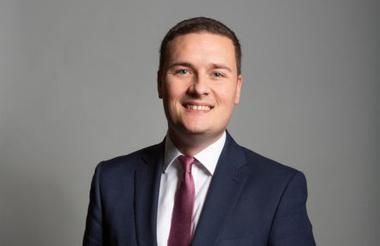Charity sector organisations have responded after health secretary Wes Streeting was filmed saying in a meeting that he was “trying to break the culture of the voluntary sector and the way that it lobbies government”.
In a meeting on 30 January, Streeting said: “I do have to say to our voluntary sector partners, your thing is important […] but it’s not the only important thing.”
He said the charity Royal Osteoporosis Society was the “worst offender” for lobbying, saying it had “attacked” the government by claiming that its delivery of bone density scanners was a distraction from its fracture liaison services rollout.
“They’re going to have to work with us,” he said. “They’re going to have to bear with us. That’s why I think they’re stakeholders, not partners.”
As an opposition MP in 2016, Streeting said “I do think that charities on the campaigning front have to be robust”, even when they are threatened with court action by the government.
Meanwhile, at a separate event today launching a call for evidence for the government’s national cancer plan, Streeting pledged to “work closely with people living with cancer, local community groups, and voluntary sector organisations as real partners in this process”.
‘Sometimes challenging government is the only way’
The government is currently working to “reset” its relationship with charities through its upcoming Civil Society Covenant, which is being produced with sector umbrella bodies NCVO and ACEVO.
A spokesperson for NCVO said: “Charities exist to improve society, and sometimes challenging government decisions and encouraging them to take action is the only way they can achieve their aims.
“We know that any new government has a range of pressures and can only cut the cloth a number of ways.
“However, we mustn’t lose focus on long-term preventative change, which will significantly reduce the burden on public services and ultimately save lives.
“We urge government to harness the skills, expertise and dedication of civil society, and appreciate campaigning as a constructive way to understand communities and make a real impact.”
Jane Ide, chief executive of ACEVO, said: “Charities have the legitimate right and responsibility to campaign and make best use of the relationships they hold with policy makers at all levels of government in the context of supporting the delivery of their charitable purposes.
“This is clearly set out in regulation and is a crucial aspect of the role our sector plays in society.
“Any attacks on individual charities for carrying out their legitimate role in advocating for policy change on behalf of the people and causes they exist to serve are worrying.
“We will continue to work across government to defend the rights of charities to campaign in line with their purpose; and for the development and adoption of a meaningful civil society covenant that will not only improve the relationship between government and civil society but most importantly lead to better public policy making for our communities.”
Leah Davis, New Philanthropy Capital’s head of policy and external affairs, said: “Streeting’s comments underline the importance of building a comprehensive and constructive partnership between government and charities.“One that can handle disagreement, and work towards common goals not just narrow interest.”
Royal Osteoporosis Society: ‘Advocacy describes our work better’
Craig Jones, Royal Osteoporosis Society’s chief executive, said: “The only thing that motivates us is the 2,500 people who are dying needless deaths from hip fractures every year.
“That’s why we’ve been campaigning for work to begin as soon as possible.
“The word ‘lobbying’ conjures up images of tobacco, gambling, special favours and brown envelopes. We provide a voice to a chronically under-recognised community, so ‘advocacy’ describes our work better.
“Charities sometimes have to challenge governments, but it doesn’t mean we don’t want to work with them constructively.
“Streeting described us as ‘stakeholders rather than partners’. When the dust settles, I hope he’ll be open to changing his mind.”
Civil Society has asked the Department of Health and Social Care to comment.
Related articles












